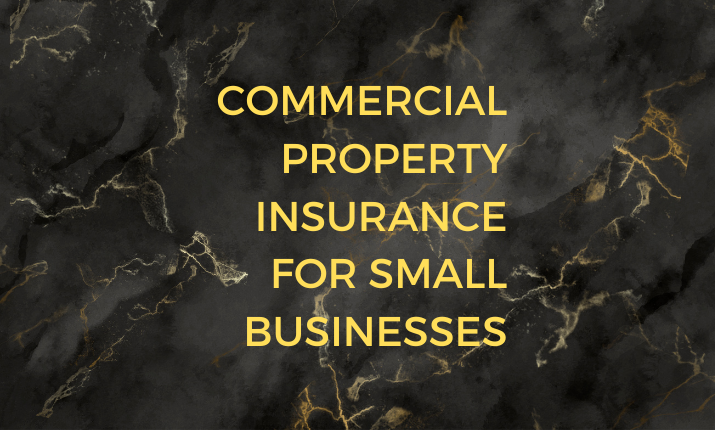Introduction
Today’s business landscape features numerous opportunities for small enterprises, and their role is indispensable in driving economic growth and innovation. Unfortunately, unexpected events can disrupt operations – this is where commercial property insurance comes in to protect them. This article will review the basics of this type of coverage, why it’s necessary, and how to choose an adequate policy.
Understanding Commercial Property Insurance
Commercial property insurance protects a business’s tangible assets, such as buildings, equipment, inventory, and more.
Importance for Small Businesses
Safeguard Investments
Small businesses just starting can find their physical assets account for an extensive portion of their capital, making commercial property insurance an essential protection against unexpected damage or loss that will allow for restoration without incurring crippling financial setbacks.
Business Continuity
Being prepared with adequate insurance protection in the event of a disaster can make all the difference between closing temporarily or quickly resuming operations without losing customers or revenue.
Liability Coverage
Commercial property insurance provides more than physical asset protection; it can also cover legal and medical costs if someone is injured on your premises.
Types of Coverage
Basic Form Coverage offers protection from common perils like fire, theft, vandalism, and certain weather-related events.
Broad Form Coverage
This provides more comprehensive protection by including additional perils within its scope of coverage.
Special Form Coverage
This comprehensive solution protects you against all possible perils except those explicitly excluded in your policy.
Factors to Keep in Mind
Location is a primary determining factor when setting premiums, with areas susceptible to natural disasters or high crime rates often having higher premiums.
Building Structure
The type and construction materials can affect insurance costs; brick-and-mortar buildings often carry lower premiums than wooden structures.
Inventory Value
Inventory and equipment should be accurately valued to ensure adequate coverage.
Additional Endorsements
Depending on the nature of your business, additional endorsements may be necessary, such as coverage for specialized equipment or hazardous materials. Selecting an Appropriate Insurance Provider
Choosing the ideal insurance provider is essential for small businesses. Here are some important steps you must take for commercial property insurance:
Research and Compare
Spend the time necessary to compare different insurance providers. Search for providers with strong reputations, great customer reviews, and proven expertise in handling claims efficiently.
Assess Financial Stability
The insurance provider you select must be financially sound; this gives you confidence that they have enough resources to cover claims in case of major catastrophes.
Review Customer Service
Customer service is of utmost importance in choosing an insurance provider; it should be responsive, helpful, and readily available for answering any queries or providing solutions to any concerns.
Read and Understand Policy Terms
Carefully read through and comprehend the terms of the policy to gain an in-depth knowledge of its exclusions, coverage limits, deductibles, and any endorsements necessary for your specific business needs.
Mitigating Risks with Loss Prevention
While commercial property insurance is essential, taking proactive steps to minimize risks is also key. Here are a few loss prevention strategies:
Security Measures
Install security systems, alarms, and surveillance cameras to deter theft and vandalism, protect your assets and potentially lower insurance premiums. Doing this will not only secure them but may lead to reduced premiums as well.
Regular Maintenance can prevent hazards or malfunctions that could result in costly damages to both property and equipment.
Emergency Prep Establish a comprehensive emergency preparedness plan. This should include evacuation procedures, emergency contacts, and safeguarding measures for vital documents and data.
Employee Training
Ensure your employees know safety protocols and what steps to take in an emergency.
Tweaking Coverage to Meet Business Needs Every business is unique; therefore, its insurance needs will differ accordingly. Here are a few tips for tailoring coverage specifically to your organization:
Conduct a Risk Evaluation
Understand your business’s risks; for instance, restaurants often present different hazards than retail shops.
Consult With An Insurance Agent Consultation with a knowledgeable insurance agent can offer valuable insights and assist with selecting appropriate coverage options suited for your type and size of business.
Reassess and Update Regularly
As your business evolves and your needs adapt, so should your insurance. For the best protection, reviewing and updating your policy regularly is a good idea to ensure it still provides adequate coverage.
Conclusion
Commercial property insurance is not only legally required in many cases; it is an invaluable lifeline for small businesses by understanding different types of coverage and considering key factors when making informed decisions to safeguard their investments.
FAQs
Do small businesses need commercial property insurance?
Although not legally necessary in every instance, landlords and lenders often require basic form coverage as an insurance measure to safeguard assets.
What perils are typically covered under basic form policies?
Basic form insurance protects businesses against fire, theft, vandalism, and certain weather-related events.
Can I expand or alter my coverage as my business grows?
Regularly review your coverage needs and adjust your policy to provide adequate protection.
Are there any exclusions I should keep an eye out for in a commercial property insurance policy?
Yes, certain policies may exclude certain perils or forms of damage; as a result, it’s essential that you carefully examine your policy and consider any necessary endorsements if required.
How can I find my business’s most cost-effective commercial property insurance plan?
Consult an experienced insurance agent so they can assess your requirements and advise on the most suitable coverage options for you.

